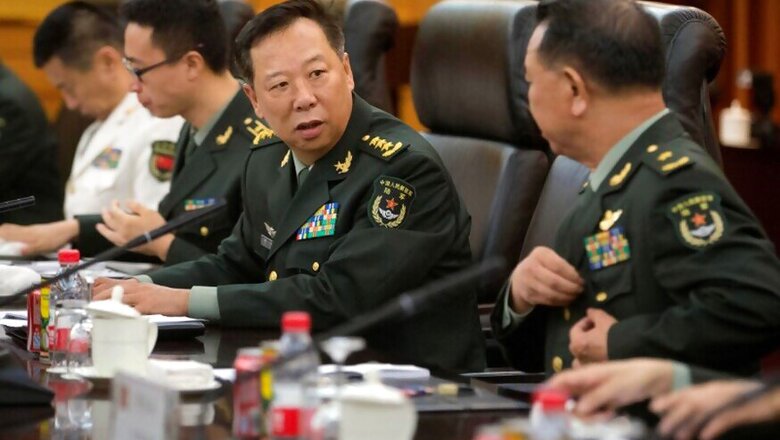
views
Beijing: China's military has promoted an army general who fought Vietnam in a brief border war in 1979, the Defence Ministry said, part of a broad reshuffle expected as part of this autumn's Communist Party congress.
In a brief statement late on Saturday, the ministry named army commander Li Zuocheng, 63, as the new chief of the Joint Staff Department of the People's Liberation Army, replacing Fang Fenghui. It is not clear if Li also remains army commander.
The ministry did not directly announce Li's promotion, simply identifying him with his new title during a meeting with Pakistan army chief Qamar Javed Bajwa in Dushanbe, the capital of Tajikistan.
It did not say what had happened to Fang, who turns 67 next year and is likely to retire.
The move comes as President Xi Jinping oversees an ambitious military modernisation programme, including adding new aircraft carriers and developing stealth fighters, and taking a more assertive stance in the disputed East and South China Seas.
Li was last year subject to a glowing profile in the official Beijing Daily that described his time fighting the Vietnamese, showing black-and-white pictures of him, aged 26 at the time, in a trench and pointing out positions on a map.
The state-run Global Times said on Sunday that Li had been wounded in the war but performed so bravely he was given the title "war hero".
China invaded Vietnam on February 17, 1979, to punish Hanoi for toppling the Beijing-backed Khmer Rouge in Cambodia one month earlier. China had previously given Hanoi steadfast support against US forces in the Vietnam War.
Relations with Vietnam have more recently soured again over the two countries' dispute in the South China Sea.
Fang earlier this month played host to US Joint Chiefs of Staff Chairman Joseph Dunford, the top US military officer.
During Li's meeting with the Pakistan army chief, on the sidelines of a regional counter-terrorism summit, Li praised China-Pakistan ties and pledged deeper cooperation, the Defence Ministry said.
China and Pakistan consider each other "all-weather friends" and have close diplomatic, economic and security ties.
China defended Pakistan last week for its sacrifices after US President Donald Trump said the United States could no longer be silent about Pakistan's "safe havens" for militants and warned it had much to lose by continuing to "harbour terrorists".
China has its own security concerns in the region, in particular any links between militants in Pakistan and Afghanistan and Islamist groups China blames for violence in its far western region of Xinjiang.



















Comments
0 comment